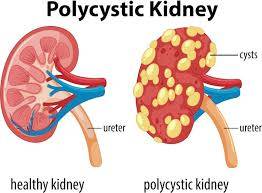How to Prevent Anemia and Promote Overall Health
Introduction:
Anemia is a prevalent health condition characterized by a deficiency of red blood cells or hemoglobin in the blood, resulting in reduced oxygen-carrying capacity. It can lead to symptoms such as fatigue, weakness, shortness of breath, and even more severe complications if left untreated. However, the good news is that anemia is often preventable through simple lifestyle changes and dietary modifications. In this comprehensive guide, we will delve into various strategies to prevent anemia, focusing on nutrition, lifestyle habits, and medical interventions.
Understanding Anemia:
Before we dive into prevention strategies, it's crucial to understand the different types of anemia and their underlying causes. Anemia can be categorized into several types, including iron deficiency anemia, vitamin deficiency anemia (such as B12 or folate deficiency), and anemia of chronic disease.

Iron deficiency anemia is the most common type, typically caused by inadequate dietary intake of iron, poor absorption of iron, blood loss (such as from menstruation or gastrointestinal bleeding), or increased demand for iron (such as during pregnancy or rapid growth periods).
Vitamin deficiency anemias, on the other hand, are caused by insufficient intake or absorption of specific vitamins essential for red blood cell production, such as vitamin B12 and folate. Anemia of chronic disease is often associated with underlying health conditions such as chronic inflammation, infection, or certain chronic diseases like cancer, autoimmune disorders, or kidney disease.
Now, let's explore effective strategies to prevent anemia:
1. Maintain a Balanced Diet:
- Consume Iron-Rich Foods: Incorporate iron-rich foods into your diet, including lean meats, poultry, fish, beans, lentils, tofu, fortified cereals, spinach, kale, and other leafy green vegetables.
- Enhance Iron Absorption: Pair iron-rich foods with sources of vitamin C, such as citrus fruits, strawberries, bell peppers, or tomatoes, to enhance iron absorption.
- Include Vitamin B12 and Folate: Ensure adequate intake of foods rich in vitamin B12, such as eggs, dairy products, meat, fish, and fortified cereals, as well as folate-rich foods like leafy greens, legumes, fortified grains, and citrus fruits.
- Consider Supplements: If you're at risk of deficiency or have specific dietary restrictions (e.g., vegetarian or vegan diets), consider taking iron, vitamin B12, or folate supplements under the guidance of a healthcare professional.
2. Be Mindful of Dietary Factors:
- Limit Tea and Coffee Consumption: Avoid consuming tea or coffee with meals as they contain compounds that can inhibit iron absorption. Instead, opt for water or vitamin C-rich beverages.
- Avoid Excessive Calcium: High calcium intake, especially from supplements, can interfere with iron absorption. Consume calcium supplements separately from iron-rich foods or supplements.
- Limit Phytate and Oxalate: Phytates and oxalates, found in whole grains, nuts, seeds, and certain vegetables, can inhibit iron absorption. While these foods are nutritious, consider diversifying your diet and consuming them in moderation.
3. Practice Healthy Lifestyle Habits:
- Manage Menstrual Health: For individuals with heavy menstrual bleeding, consider talking to a healthcare provider about treatment options to manage blood loss effectively.
- Maintain Optimal Weight: Being underweight or overweight can affect hormone levels and nutrient absorption, potentially impacting red blood cell production. Aim for a healthy weight through balanced nutrition and regular physical activity.
- Exercise Regularly: Engage in moderate-intensity aerobic exercise, such as walking, jogging, cycling, or swimming, to promote cardiovascular health and overall well-being. Consult with a healthcare provider before starting any new exercise regimen, especially if you have existing health conditions.
4. Seek Regular Medical Check-Ups:
- Monitor Blood Counts: Regularly monitor your hemoglobin levels through blood tests, especially if you have risk factors for anemia or underlying health conditions that may predispose you to deficiencies.
- Address Underlying Health Issues: If you have chronic medical conditions or gastrointestinal disorders that affect nutrient absorption, work closely with your healthcare team to manage these conditions effectively and prevent nutritional deficiencies.
- Consider Genetic Factors: Certain genetic conditions, such as thalassemia or sickle cell anemia, may require specialized management and monitoring. Talk to a genetic counselor or healthcare provider for personalized recommendations.

5. Pregnancy and Anemia Prevention:
- Prenatal Care: If you're pregnant or planning to become pregnant, prenatal care is essential for monitoring iron levels, addressing nutritional needs, and preventing complications associated with iron deficiency anemia.
- Iron Supplementation: Pregnant individuals may require iron supplements to meet the increased demand for iron during pregnancy. Follow healthcare provider recommendations regarding supplementation dosage and timing.
Conclusion:
Anemia is a prevalent condition that can have significant health implications if left untreated. However, by adopting a balanced diet, practicing healthy lifestyle habits, seeking regular medical check-ups, and addressing specific risk factors, you can effectively prevent anemia and promote overall health and well-being. Remember to consult with a healthcare professional for personalized guidance and recommendations tailored to your individual needs and circumstances. By taking proactive steps, you can ensure optimal red blood cell production and maintain vitality and energy levels for a fulfilling life.
 blogpay
blogpay



















